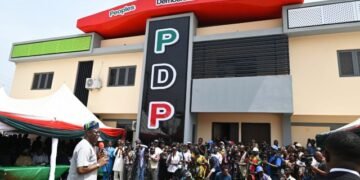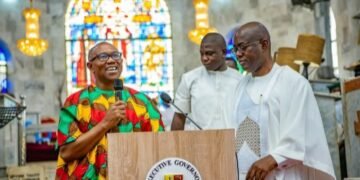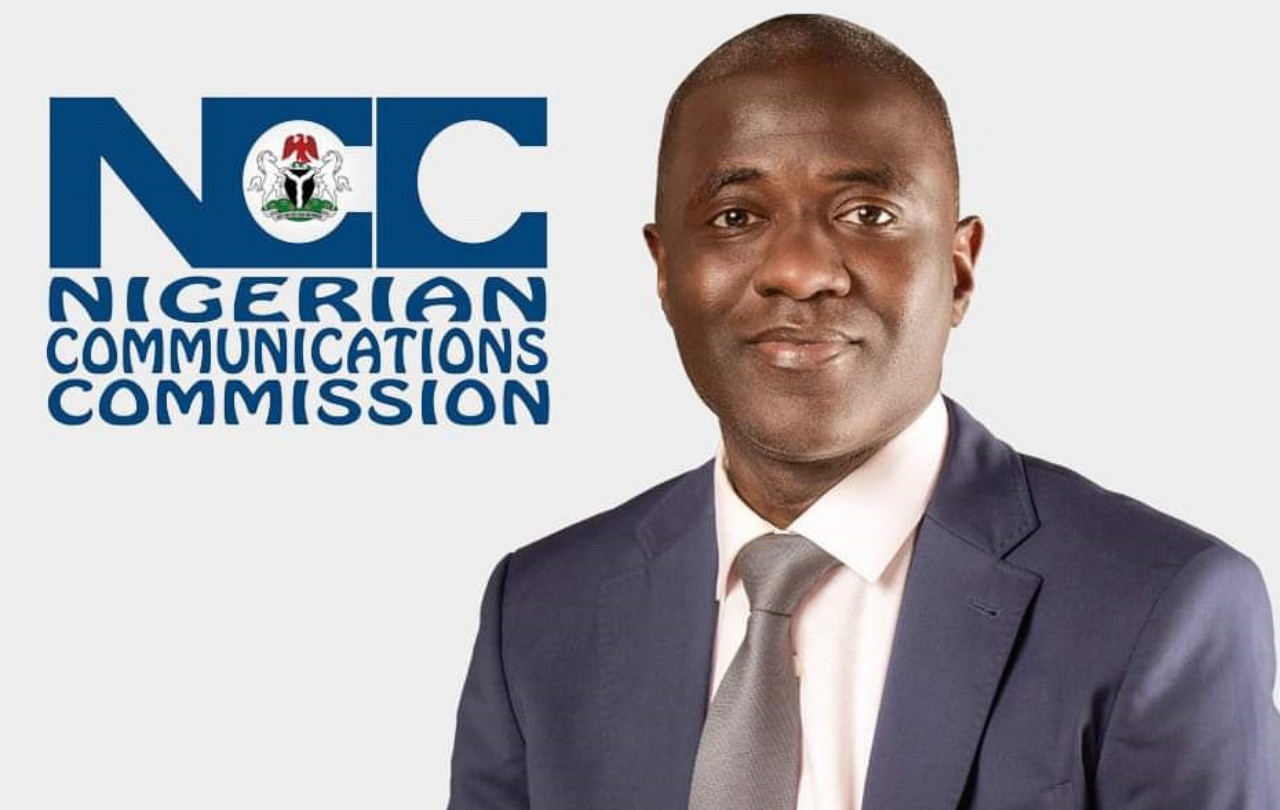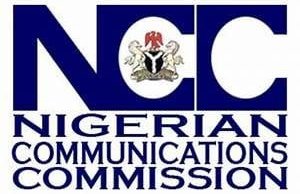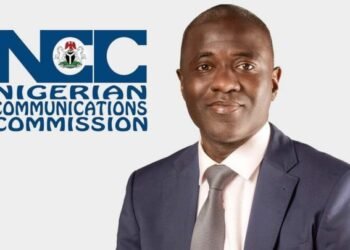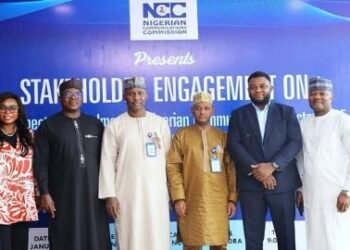Nigerian Communications Commission (NCC) has announced its readiness to support the target to boost Nigeria’s broadband penetration up to 70 per cent by the end of 2025.
Executive Vice Chairman/CEO of the Commission, Dr Aminu Maida, made this known while speaking at the 13th Annual Nigeria ICT Impact CEO Forum/Africa Digital Award, held in Lagos, last weekend.
The 70 per cent broadband target is as envisioned by the Minister of Communications, Innovation and Digital, Dr Bosun Tijani, in line with the Nigerian National Broadband Plan (NNBP) 2020-2025.
The target is hoped to be achieved through the laying of 95,000 kilometres of fibre optic cables across the country.
The NCC boss said broadband or high-speed Internet access allows users to access the internet and Internet-related services at significantly higher speeds than those available through “dial-up” services.
He disclosed that the digital revolution has brought about changes to how businesses and economies operate.
He also said most developing economies were catching up with the trend and investing significantly in areas of information technology and wireless communications.
Maida, represented at the event by the NCC Director of Public Affairs, Rueben Muoka, in his keynote address, spoke on the theme, “Broadband Availability And Potentials Of Data Revolution”.
He said the theme was another opportunity for NCC, as the regulator of the telecoms sector, to share thoughts and ideas with industry stakeholders concerning the prospects and challenges confronting the quest to “achieving ubiquitous broadband connectivity across the nooks and crannies of Nigeria.”
Maida also said NCC is targeting the provision of coverage of, at least, 80 per cent of the country’s population, in line with the vision of the ministry.
He said the underserved and unserved populations, especially, would be reached by the end of 2027.
“We also intend to secure between 300-500 per cent increase in broadband investment by the end of 2027; while we work to reduce the gap of unconnected Nigerians in rural areas from 61 per cent to less than 20 per cent by 2027,” he added.
The NCC boss said the focus of the Commission in the next four years and beyond is in strict alignment with the vision for the digital economy, a stated in the Strategic Plan of the minister.
“The Strategic Blueprint, unveiled in October 2023, has five pillars and prioritizes deployment of broadband infrastructure and digital empowerment of three million Nigerian youths, among others.
“One of the five pillars of the Strategic Blueprint is the “Infrastructure” component, which focuses on broadband accessibility, availability and affordability.
“Other pillars of the ministerial strategic plan are Knowledge; Policy; Innovation/Entrepreneurship and Capital; and Trade.
“The Strategic Plan is designed to drive a major part of the overall implementation of the Renewed Hope Agenda of President Bola Tinubu,” he stated.
Maida disclosed that NCC is committed to the other key targets in the Strategic Plan,, which has adopted a clear-cut strategy to transform Nigeria’s digital economy sector.
The plan, he said, to deliver data download speed of 25Mbps in urban areas and 10Mbps in rural areas by the end of 2025;
Achieve a 50 per cent improvement in quality of service (QoS) by 2024; 22 per cent increase in net GDP contribution by digital economy by 2027; and increase in investment in Nigeria’s telecommunications sector by 15 per recent year-on-year.
Maida said: “The Ministerial Blueprint also targets 70 per cent digital literacy by 2027; a capital increase raised by Nigerian tech startups by 50 per cent year-on-year from $1 billion/year in 2022 to $5 billion/year in 2027;
“And achieving 25 per cent domiciliation of local technology startups by 2027.
“Other expectations are to accomplish for Nigeria 60 per cent government data digitization by the end of 2026;
“The creation of 50,000 Artificial Intelligence (AI) industry jobs by 2026 while also ensuring the accomplishment of 22 per cent net GDP contribution by 2027, among others.”

